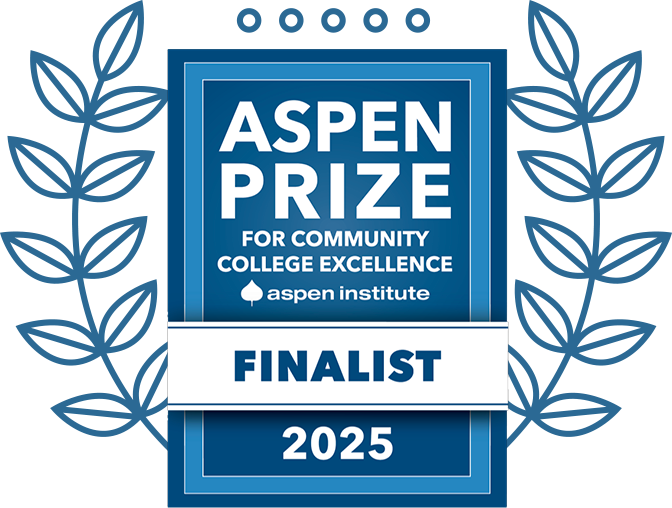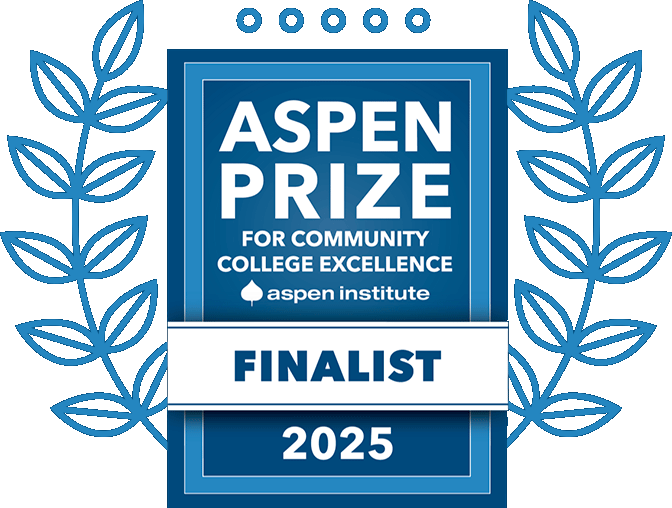Online Nutrition Homepage
A printable version (MS Word) of the syllabus can be found on the course's Desire-2-Learn (D2L) page
BIOL 2190
Principles of Nutrition
Instructor Information:
Instructor: Mr. Jason Hitzeman
Office: Walraven 336
Phone Number: 706-368-7525
Email: jhitzema@highlands.edu
Course Description:
BIOL 2190 covers the fundamental principles of human nutrition from a biological perspective. Included will be the study of the major nutrient classes, nutrition and related diseases, role of major nutrients, consumer concerns about foods, and the requirements of various stress groups.
This is an online, distance-learning course with minimal instructor contact. There is no orientation for this course. Students must log into Desire-2-Learn (D2L), access & review the syllabus, and email the instructor by the 3rd class day of the new term to confirm their enrollment in the course. Any student failing to do so may be dropped from the class at the instructor's discretion. By taking this class you are also confirming that you have a computer in good working order with reliable internet access. You will also need access to Microsoft Word and Exel (both of these can be accessed in the library/computer lab of any GHC campus) or a compatible program (LibreOffice and OpenOffice can both be found online for free). Be aware that technical difficulties on your end does not necessarily constitute a valid excuse for missing a deadline. Always email the instructor IMMEDIATELY if you have technical issues.
Text:
Nutrition & You, 4th ed. by Blake. The course also requires access to Mastering Nutrition by Pearson. This is was included with all new textbooks purchased through the GHC bookstore. It can be purchased separately by clicking here.
Prerequisites:
Satisfactory Placement Scores or ENGL 0989 & MATH 0987 or ENGL 0989 & MATH 0989
Students with Disabilities:
Students who feel they may need an accommodation based on the impact of a disability should make an appointment with Student Support Services: Cartersville 678-872-8004; Floyd 706-368-7536; Marietta 678-915-5021; Paulding 678-946-1029. to coordinate reasonable accommodations. The students are also welcome to contact the instructors privately to discuss one’s specific needs.
Statement of Academic Integrity:
All work presented is expected to be produced by the student’s own efforts. Plagiarism (copying of another’s work or written material, even just a sentence or two, and then claiming it as your own work or not giving credit to the original author), cheating, or attempting to cheat is ample reason for receiving an F on that assignment or even the course. This includes homework and other assignments, tests and quizzes, laboratory work (if applicable), and any other work for a grade unless expressly stated in the instructions. Policies on student conduct and academic integrity are in the College’s “Student Rights & Responsibilities” document. This can be accessed Here
Grading Scale:
89.5-100% = A 79.5-89.4% = B 69.5-79.4% = C 59.5-69.4% = D < 59.5% = F
Evaluation Methods and Grading:
Grades are determined by proficiency on regular exams, the final exam, assignments, and a diet analysis. There are no extra credit or bonus opportunities. Grades are weighted differently for different portions of the course. Simply averaging all your grades together will not give you an accurate class average. I am always more than willing to give you my best calculation of your standing in the cource upon request. Each portion’s value towards your final grade is listed below.
Regular exams = 50% of final grade
Final exam = 25% of final grade
Dietary Analysis = 5% of final grade
Mastering Assignments = 10% of final grade
Discussions = 5% of final grade
Fast Food Challenge = 5% of final grade
All exams (except the final exam) and assignments will be completed online. Announcements will be posted on D2L reminding students of upcoming deadlines.
IMPORTANT: Students taking this course will be using Respondus LockDown Browser and Monitor for their exams. In order to use Respondus LockDown Browser and Monitor personal computers/electronic media must have the following:
- Windows: 10, 8, 7, Vista
- Mac: OS X 10.7 or higher
- For Mac users: Safari must function properly on the computer
- iOS: 7.0+ (iPad only). Must have a compatible LMS integration. Details.
- Adobe Flash Player
- Web camera (internal or external) & microphone
- A broadband internet connection
Regular exams will be made up of 75 questions. Exams will be available for 48 hours during Fall & Spring semesters and 24 hours during Summer term. So please refer to the exam schedule and plan your personal schedule accordingly. The test can be taken anytime it’s available, but only once. Students will have a 1:15 time limit to complete the exam. Old exams will not be made available for student viewing online. If you wish to look over an old exam, you must make an appointment with me on the Rome or Cartersville campus to view them.
ONE exam may be made up without penalty based on the student’s word. Any further make-ups will require a documentable excuse and are given at the discretion of the instructor. Without a valid excuse, students can still make-up exams, but those are subject to a 50% reduction in their grade! You must contact me in order to make up any exam (excused or unexcused).
The Final exam will be made up of 150 questions and will be taken on a specific day and time-frame using Respondus LockDown Browser and Monitor. It will not be available for multiple days like regular exams. There is NO make-up of the final exam without a documented, verifiable excuse.
Discussions will take place using the “Discussions” feature on D2L. All students are required to participate! Minimal participation (only once per topic) will result the minimal passing grade (70%). In order to bring that score up, you must participate multiple times in discussion topics. You should post your own ideas and reply to what others have posted. This is a discussion so it is okay to ask questions as well in your postings. The more interactive these are, the better they will be. Most discussions will last 1-2 weeks before me move on to the next topic. Topics will usually consist of topics specifically pertaining to the current chapter’s material, as well as generalized topics about nutrition as a whole. Topics will be broad and open-ended to allow plenty of discussion and back and forth. Your grade on these is primarily based on your participation rather than the accuracy of your statements. That said if you consistently add false/inaccurate information to the discussions, you could be docked points. Any students who are rude, vulgar or confrontational, will be docked points for that discussion and may be blocked from future discussions (also affecting their grade). The instructor has the right to remove any student posting he sees fit. If I do remove a post, I will communicate with the student via email the reason for its removal. There are NO make-ups of missed discussions!
The Diet Analysis is a group of small assignments that will focus on your diet and how that diet can be improved. It is composed of 3 assignments that you must complete; diary, data collection, and analysis. The idea is that they will be fun and insightful, and more importantly relatively easy. It just takes some time to collect all the appropriate info. Each section will have its own due date and grade. The average of the 3 parts will make up your final grade for the analysis. Late parts are subject to a 10% grade reduction for every day late! You are always welcome to turn in parts early.
The (Nearly Impossible) Fast Food Challenge is an assignment that focuses on the role fast food plays in the American diet and how it is nearly impossible to eat a healthy diet if you are consistently eating fast food. It will take advantage of data available online or in-store and will not require you to actually eat fast food. The idea is that they will be fun and insightful, but not easy so plan accordingly. Late assignments are subject to a 10% grade reduction for every day late! You are always welcome to turn it in early.
All grades will be posted on D2L. You are always welcome to contact me with any grade issues at any time.
Make-Up Work:
Because of the format & flexibility of the class, as well as the long duration you have to complete most assignments, make-up work will only be allowed at the instructor’s discretion on a case-by-case basis. Some make-up work may require an on-campus visit. The make-up work may take on any format (multiple-choice, short answer, essay, etc…) of the instructor’s choosing. There are no make-up opportunities for missed ARIS assignments.
Student Learning Outcomes:
1. Students will demonstrate competency of one discipline in the sciences in terms of its informational content.
2. Students will demonstrate competency of on discipline in the sciences in terms of its terminology.
3. Students will demonstrate competency of on discipline in the sciences in terms of its commonly used units of
measurement.
4. Students will demonstrate the ability to operate basic instrumentation, gather data, and generate conclusions
in a laboratory or observational setting.
5. Students will demonstrate the ability to apply discipline content to problem solving.
Earned F:
This message applies only to students receiving financial aid: Federal regulations state that if a student did not attend classes and received failing grades, then the grades were not earned and financial aid needs to be reduced accordingly. Please be advised that any student receiving a 0.00 GPA will be required to prove that the 0.00 GPA was earned by attending classes or completing requirements for each class. Students who have earned at least one passing grade for the semester will not be affected by this regulation. If a student has properly withdrawn from all classes, the student’s financial aid should be adjusted from the time they signed the withdrawal form.
Policies & Procedures:
Georgia Highlands College has in place a number of policies and procedures for students. These include the Grievance Policy, Appealing a Grade, Extended Absence Policy, Incomplete Grade Policy, Hardship Withdrawal Policy, Tobacco Free Campus Policy, Sexual Harassment Policy, and a No Weapons Policy. More information on these can be accessed Here and
Early Grades Statement:
GHC offers a variety of part-of-term classes to allow our students to have flexible schedules. However, there are only three Semesters each year; Spring, Summer and Fall. It is only at the end of each Semester that grades are rolled to academic history and available on the official transcript. After each part-of-term, as soon as Instructors have entered grades, they may be viewed online by logging into the Charger Portal (https://chargerportal.highlands.edu/). Transcripts may also be request at any time by logging into the Charger Portal. Prior to the end of term, should a student need an early grade letter sent to another institution they may complete the request form and submit it to the Registrar’s Office for processing (https://sites.highlands.edu/registrar/registrar-forms/). Please contact the Registrar’s Office at registrar@highlands.edu if you need any assistance.
Early Warning Program:
Georgia Highlands College requires that all faculty members report their students' progress throughout the course of the semester as part of the institution-wide Early Warning Program (EWP). The objective of the program is to support academic success by reviewing early indicators of satisfactory student progress. In accordance with EWP, faculty members provide the Registrar's Office with academic reports of each student enrolled in their course(s) at checkpoints staggered throughout the semester. The following success factors are reported at their corresponding checkpoint:
Week 2: Notification of Non-attendance
Week 6: Satisfactory or Unsatisfactory Progress


